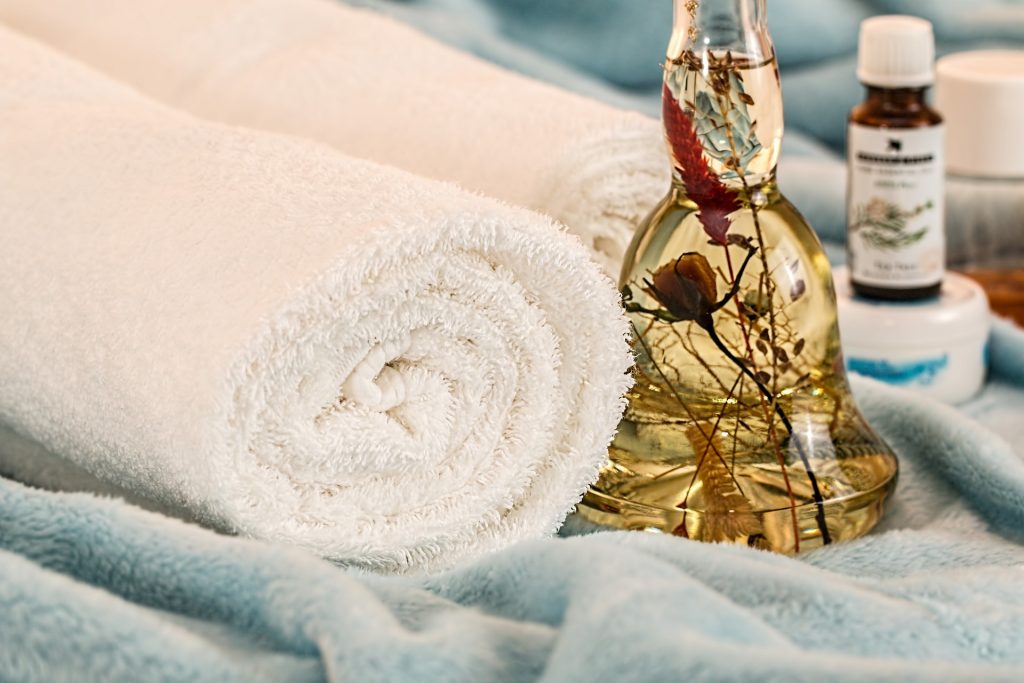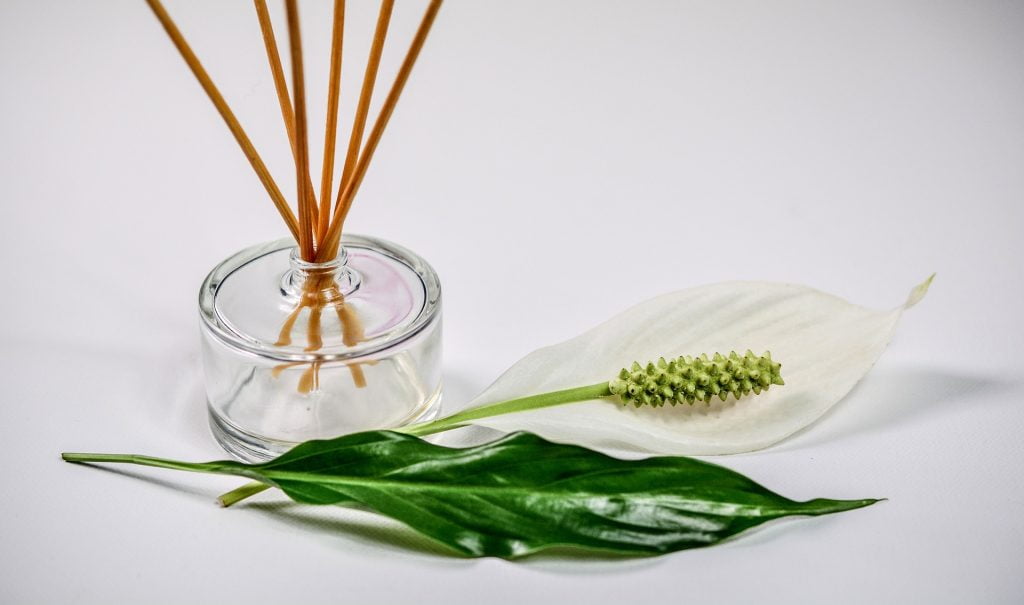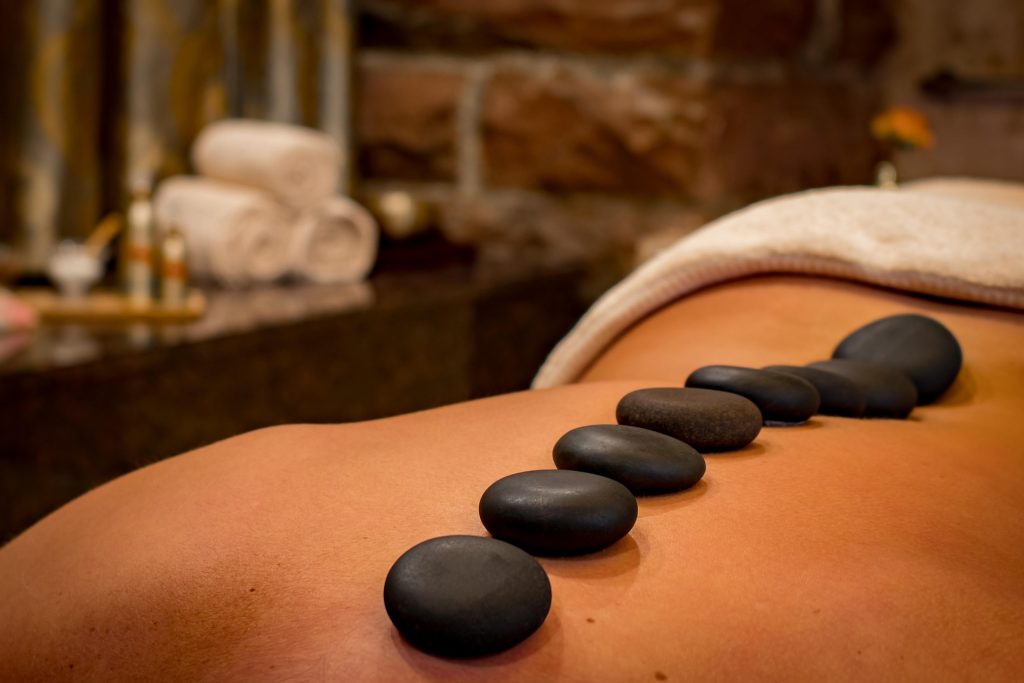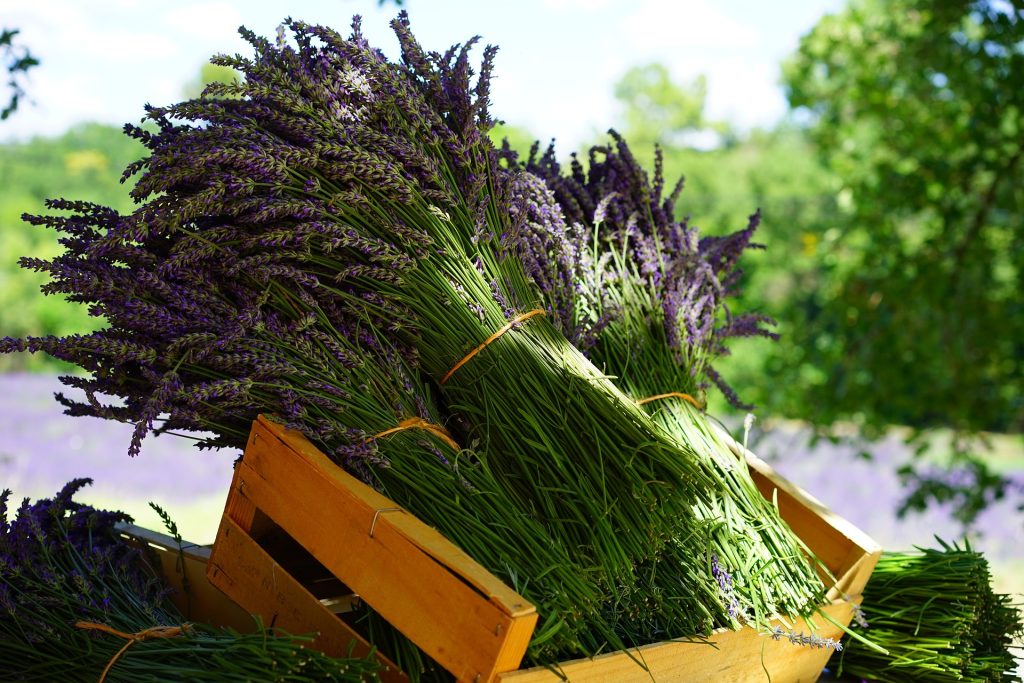Aromatherapy, the practice of using essential oils extracted from plants for therapeutic purposes, has been around for centuries. While it was once considered a New Age fad, modern science has shown that aromatherapy has real health benefits. Essential oils are known for their ability to promote relaxation, improve mood, reduce anxiety, and even alleviate pain. Aromatherapy can be used to enhance physical and mental well-being, making it a popular alternative therapy. In this article, we’ll explore the science behind aromatherapy and discuss the many benefits of this ancient practice for health and wellness.
How Aromatherapy Works for Health and Wellness
While the use of essential oils in aromatherapy is a popular trend in the wellness industry, many people still don’t understand how it works.
The Role of Essential Oils in Aromatherapy
Essential oils are highly concentrated plant extracts that contain the natural fragrance and flavor of the plant. They are extracted from different parts of plants, such as leaves, flowers, roots, and bark. Essential oils are considered the backbone of aromatherapy, as they provide the therapeutic benefits and pleasant aroma that make the practice so effective.
Aromatherapy practitioners believe that inhaling the aroma of essential oils can stimulate brain function, enhance mood, and promote relaxation. When essential oils are inhaled, they enter the body through the olfactory system, which is responsible for the sense of smell. The olfactory system is connected to the limbic system, which is the part of the brain responsible for regulating emotions and memory. This connection is what makes the use of essential oils in aromatherapy so effective in promoting relaxation and reducing stress.
Understanding the Chemical Composition of Essential Oils
Essential oils are made up of complex chemical compounds that are unique to each plant species. These compounds determine the aroma, therapeutic properties, and chemical reactions of the oil. Essential oils contain volatile organic compounds (VOCs), which are compounds that can easily evaporate and release a strong aroma. Some of the most common VOCs found in essential oils include terpenes, alcohols, esters, and ketones.
The chemical composition of essential oils can vary depending on factors such as the time of year the plant was harvested, the climate it grew in, and the method of extraction. For example, lavender essential oil extracted from plants grown in different regions can have different chemical compositions, which can affect their therapeutic properties.
How Essential Oils Interact with the Body
Essential oils can be absorbed by the body through inhalation, ingestion, or topical application. Inhalation is the most common method used in aromatherapy. When essential oils are inhaled, the VOCs enter the body through the lungs and into the bloodstream. The aroma molecules then interact with the limbic system, which can influence emotions, memory, and mood.
Topical application is another common method of using essential oils. When essential oils are applied to the skin, they can be absorbed into the bloodstream and can have a local or systemic effect. Essential oils are often diluted with a carrier oil, such as coconut oil or almond oil, before being applied to the skin to prevent irritation.
Ingestion of essential oils is not recommended, as some essential oils can be toxic when ingested. It’s important to always use essential oils safely and follow recommended dilution ratios and usage guidelines.

Benefits of Aromatherapy for Health and Wellness
Aromatherapy is a holistic approach to healing that works by stimulating the senses and enhancing the body’s natural healing processes.
Stress and Anxiety Reduction
Aromatherapy is widely used for its ability to reduce stress and anxiety. Essential oils such as lavender, chamomile, and ylang-ylang have a calming effect on the body and mind. When inhaled, these oils can help to reduce feelings of stress and anxiety and promote relaxation. The scent of these oils can also help to reduce cortisol levels, which is a hormone associated with stress.
Boosting Energy and Alertness
Aromatherapy can also be used to boost energy levels and promote alertness. Essential oils such as peppermint, rosemary, and eucalyptus have stimulating properties that can help to increase energy levels and improve mental clarity. These oils can be inhaled or applied topically to provide an invigorating effect.
Better Sleep and Insomnia Relief
Aromatherapy can be an effective natural remedy for those who struggle with insomnia or have difficulty falling asleep. Essential oils such as lavender and chamomile have a sedative effect on the body and can help to promote relaxation and sleep. When inhaled or applied topically, these oils can help to calm the mind and promote restful sleep.
Pain Relief and Management
Aromatherapy can also be used to manage pain and reduce discomfort. Essential oils such as peppermint, ginger, and eucalyptus have analgesic properties that can help to reduce pain and inflammation. These oils can be applied topically or inhaled to provide relief from headaches, sore muscles, and other types of pain.
Digestive Health
Aromatherapy can also be used to support digestive health. Essential oils such as peppermint, ginger, and fennel have digestive properties that can help to reduce nausea, bloating, and other digestive issues. These oils can be ingested, inhaled, or applied topically to provide relief.
Respiratory Health
Aromatherapy can be an effective natural remedy for respiratory issues such as colds, coughs, and allergies. Essential oils such as eucalyptus, peppermint, and tea tree have respiratory properties that can help to clear congestion, reduce inflammation, and promote easier breathing. These oils can be inhaled or applied topically to provide relief.
Skin Health and Care
Aromatherapy can also be used to support skin health and care. Essential oils such as lavender, tea tree, and frankincense have antibacterial and anti-inflammatory properties that can help to promote healthy skin. These oils can be applied topically or added to skin care products to provide a natural remedy for skin issues such as acne, eczema, and psoriasis.
Immune System Support
Aromatherapy can be used to support the immune system and promote overall health and wellness. Essential oils such as lemon, tea tree, and eucalyptus have immune-boosting properties that can help to prevent illness and reduce the severity of symptoms. These oils can be inhaled, ingested, or applied topically to provide immune system support.
Women’s Health
Aromatherapy can also be used to support women’s health in various ways. Essential oils such as clary sage and geranium can help to regulate hormonal imbalances and reduce menstrual cramps. These oils can be applied topically or inhaled to provide relief. Aromatherapy can also be used during pregnancy to reduce nausea and promote relaxation.
However, it is important to use essential oils safely and according to instructions, as some oils can cause allergic reactions or other side effects. With proper use, aromatherapy can be a valuable tool in maintaining optimal health and wellness.

Different Methods of Using Aromatherapy for Health and Wellness
The use of essential oils can provide a variety of benefits for the mind and body. There are different methods of using aromatherapy, including inhalation, topical application, aromatherapy diffusers, aromatherapy massage, and aromatherapy bath.
Inhalation is the most common method of aromatherapy
This method involves inhaling essential oils directly or indirectly through the nose or mouth. The easiest way to inhale essential oils is to put a few drops of oil on a tissue or handkerchief and inhale deeply. Another way to inhale essential oils is to add a few drops to a bowl of hot water and inhale the steam. This method is great for respiratory problems, as it helps to clear the nasal passages and promote better breathing.
Topical application of essential oils involves applying the oil directly to the skin
This method is great for managing pain, inflammation, and skin problems. Essential oils can be applied to the skin in a carrier oil such as coconut oil, jojoba oil, or almond oil. The oil can be applied to specific areas of the body or massaged into the skin for overall relaxation.
Aromatherapy diffusers are another popular method of using essential oils
A diffuser is a device that disperses essential oils into the air, allowing the user to inhale the scent. A diffuser can be used in a home, office, or spa setting. There are different types of diffusers available, including ultrasonic, nebulizing, and electric diffusers. Each type of diffuser has its own benefits and drawbacks, but they all work to disperse essential oils into the air for inhalation.
Aromatherapy massage is a therapeutic method of using essential oils
This method involves using essential oils during a massage to promote relaxation, reduce stress, and manage pain. Essential oils can be added to massage oil or lotion and used during a massage session. Aromatherapy massage is a great way to combine the benefits of massage therapy with the benefits of aromatherapy.
Aromatherapy bath is another great way to use essential oils
Adding essential oils to a warm bath can help to promote relaxation, relieve stress, and ease muscle tension. Essential oils can be added directly to the bathwater or mixed with a carrier oil before adding to the water. It is important to note that some essential oils can be irritating to the skin, so it is important to dilute them properly before adding to the bathwater.
Each method has its own benefits and can be used to manage a variety of health conditions.

Choosing and Using Essential Oils for Aromatherapy
It is important to note that essential oils should always be used with caution and under the guidance of a qualified aromatherapist or healthcare professional.
Essential Oils for Stress and Anxiety Relief
Stress and anxiety are common problems that affect many people. Essential oils such as lavender, bergamot, chamomile, and frankincense are known for their calming and relaxing effects. These oils can be used in diffusers or added to a carrier oil and applied topically to the skin. They can also be added to a warm bath or used in massage therapy to promote relaxation.
Essential Oils for Better Sleep
A good night’s sleep is essential for overall health and well-being. Essential oils such as lavender, chamomile, and ylang-ylang are known for their sedative properties and can be used to promote relaxation and improve sleep quality. These oils can be diffused in the bedroom or added to a warm bath before bedtime.
Essential Oils for Pain Relief and Management
Chronic pain is a common problem that affects millions of people worldwide. Essential oils such as peppermint, eucalyptus, and ginger are known for their analgesic and anti-inflammatory properties and can be used to alleviate pain and inflammation. These oils can be added to a carrier oil and applied topically to the affected area or used in massage therapy.
Essential Oils for Digestive Health
Digestive problems such as bloating, constipation, and indigestion are common complaints. Essential oils such as peppermint, ginger, and fennel are known for their digestive properties and can be used to alleviate these symptoms. These oils can be added to a carrier oil and applied topically to the abdomen or added to warm water and consumed as a tea.
Essential Oils for Respiratory Health
Respiratory problems such as coughs, colds, and asthma are common conditions that can affect breathing. Essential oils such as eucalyptus, tea tree, and peppermint are known for their respiratory properties and can be used to alleviate these symptoms. These oils can be added to a diffuser or added to a carrier oil and applied topically to the chest or back.
Essential Oils for Immune System Support
The immune system plays a critical role in protecting the body against infections and diseases. Essential oils can help support the immune system by stimulating the production of white blood cells, which are responsible for fighting off harmful pathogens.
Some essential oils that are known to support the immune system include:
- Tea tree oil: Tea tree oil has antiviral, antibacterial, and antifungal properties, which makes it an excellent choice for immune system support.
- Eucalyptus oil: Eucalyptus oil has been shown to have immune-stimulatory effects, which can help increase the production of white blood cells and improve overall immune function.
- Lemon oil: Lemon oil has antioxidant and antibacterial properties, which can help support the immune system by protecting against harmful pathogens.
- Frankincense oil: Frankincense oil has immune-boosting properties and has been used for centuries in traditional medicine for its ability to enhance immune function.
When using essential oils for immune system support, it’s important to dilute them properly and use them in a safe and responsible manner. It’s also important to note that while essential oils can support the immune system, they should not be used as a substitute for medical treatment or advice.
Essential Oils for Women’s Health
Essential oils can be a valuable tool for supporting women’s health and well-being. They can help with a range of issues, including menstrual cramps, hormonal imbalances, and menopause symptoms.
Some essential oils that are known to support women’s health include:
- Clary sage oil: Clary sage oil has been shown to help relieve menstrual cramps and other menstrual-related symptoms. It can also help balance hormones and improve mood.
- Lavender oil: Lavender oil is known for its calming and relaxing properties, which can help reduce stress and anxiety. It can also be helpful for women experiencing menopause symptoms, such as hot flashes and night sweats.
- Geranium oil: Geranium oil can help regulate hormones and improve mood. It can also be helpful for women experiencing menstrual cramps or other menstrual-related symptoms.
- Ylang-ylang oil: Ylang-ylang oil can help balance hormones and improve mood. It can also be helpful for women experiencing premenstrual syndrome (PMS) symptoms.
When using essential oils for women’s health, it’s important to consult with a healthcare professional to determine the best course of treatment. Essential oils should not be used as a substitute for medical treatment or advice.

Safety Precautions When Using Aromatherapy
Essential oils are highly concentrated plant extracts that contain powerful compounds that can have both positive and negative effects on the body. Therefore, it is essential to understand the risks and safety precautions of essential oils before using them.
Understanding the Risks and Safety Precautions of Essential Oils
Essential oils are generally safe when used as directed, but they can cause adverse reactions if used improperly. Some essential oils may cause skin irritation or sensitization, while others may be toxic if ingested or used in large amounts. It’s important to research and understand the potential risks of each essential oil before use, especially if you have any underlying health conditions.
Tips on Choosing High-Quality Essential Oils
When it comes to choosing essential oils, quality is key. High-quality essential oils are made from pure, organic, and natural ingredients and are free from synthetic fragrances, additives, or contaminants. Look for oils that are labeled as “therapeutic grade” or “certified organic,” and only buy from reputable brands or suppliers.
How to Dilute Essential Oils for Safe Use
Essential oils are highly concentrated, so it’s important to dilute them before use to avoid skin irritation or other adverse reactions. Dilution involves mixing the essential oil with a carrier oil, such as coconut oil, almond oil, or jojoba oil, to reduce the concentration of the essential oil. The recommended dilution ratio varies depending on the essential oil and the intended use, but a general rule of thumb is to use 1-2 drops of essential oil per teaspoon of carrier oil.
When to Avoid Using Essential Oils
There are certain situations where it’s best to avoid using essential oils altogether. For example, if you’re pregnant, nursing, or have a medical condition, it’s important to talk to your healthcare provider before using essential oils. Some essential oils may be contraindicated for certain medical conditions or may interact with medications. Additionally, it’s important to avoid using essential oils on infants, young children, or pets, as they may be more sensitive to the effects of essential oils.
By understanding the risks and safety precautions of essential oils, choosing high-quality oils, and diluting them properly, you can safely incorporate aromatherapy into your daily routine.
However, it’s important to remember to use essential oils safely and understand the potential risks. With a little knowledge and the right tools, aromatherapy can be a powerful tool for promoting physical and mental well-being.






